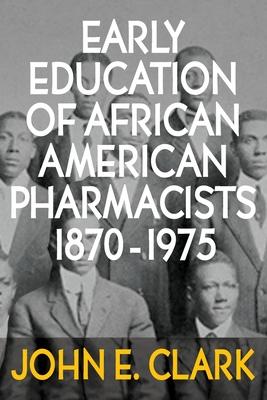Largely forgotten are those African American pharmacy schools that were formed during the late 19th and early 20th centuries that are now defunct, but not before introducing a significant number of African American pharmacists into the profession for the first time in the history of the country. Although the schools did not survive the racism, economic, and social challenges during the time, they made significant contributions to the health of their communities and paved the way for the diversity and inclusion of African Americans in pharmacy that continues today. This book reviews seven schools that were established for the purpose of training African American pharmacists after the Civil War to service their communities but are now defunct; identifies some of the first college-trained African American pharmacists in the U.S.; introduces the first African American females to receive a pharmacy degree; and describes African American pharmacists who overcame, what may be considered insurmountable odds, to be successful practitioners and entrepreneurs for the benefit of their communities.

Early Education of African American Pharmacists 1870-1975
Largely forgotten are those African American pharmacy schools that were formed during the late 19th and early 20th centuries that are now defunct, but not before introducing a significant number of African American pharmacists into the profession for the first time in the history of the country. Although the schools did not survive the racism, economic, and social challenges during the time, they made significant contributions to the health of their communities and paved the way for the diversity and inclusion of African Americans in pharmacy that continues today. This book reviews seven schools that were established for the purpose of training African American pharmacists after the Civil War to service their communities but are now defunct; identifies some of the first college-trained African American pharmacists in the U.S.; introduces the first African American females to receive a pharmacy degree; and describes African American pharmacists who overcame, what may be considered insurmountable odds, to be successful practitioners and entrepreneurs for the benefit of their communities.